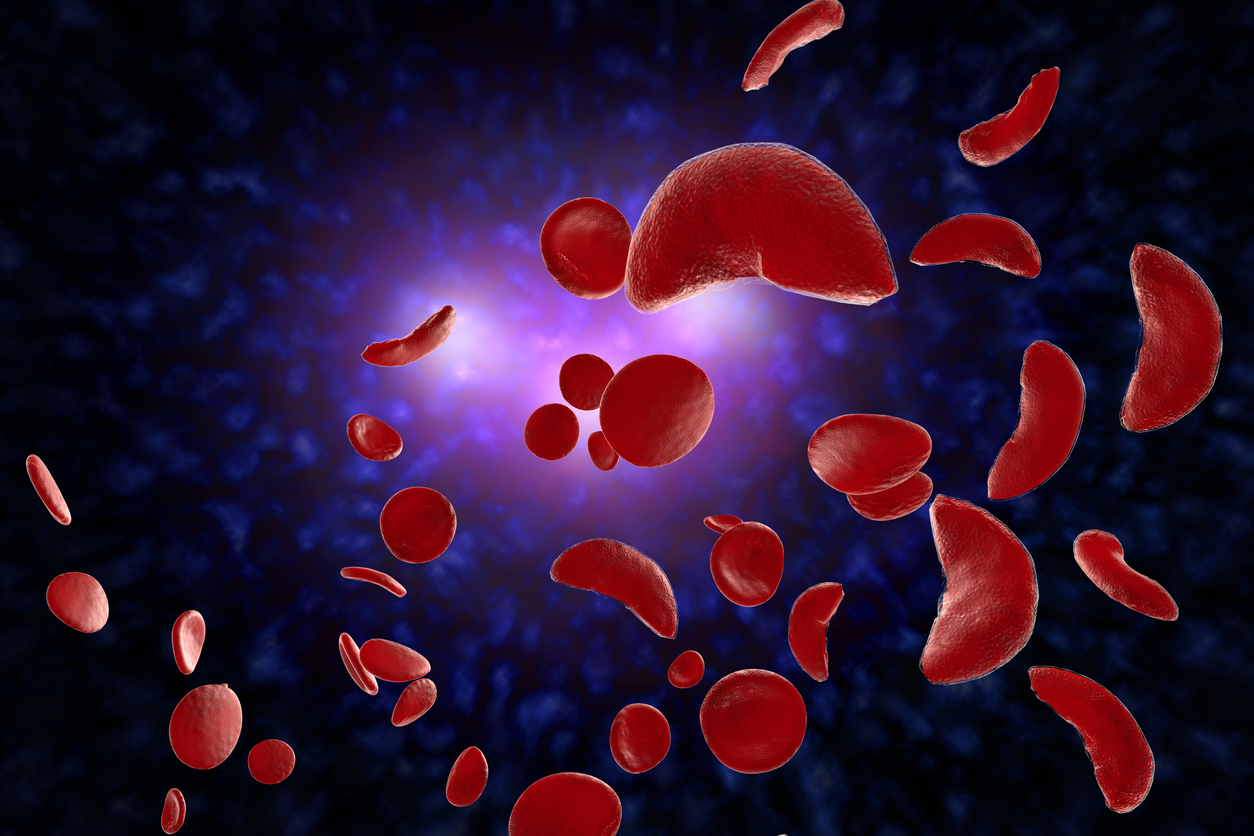Sickle Cell Disease or Sickle Cell Anemia is not talked about as much as it was in the 60s, 70s, and 80s, however, the disease was discovered in America in 1910, over 110 years ago. Sickle Cell Anemia is an inherited red blood cell disorder where there are not enough healthy red blood cells to carry oxygen throughout the body. The round red cells usually are flexible and can quickly move through the blood vessels. Sickle Cell Disease (SCD) can affect individuals of any ethnicity or race but is more common in African Americans in the U.S. compared to other ethnicities-occurring in approximately 1 in 364 African Americans.
In early Sickle Cell Disease awareness campaigns, The Black Panther Party took up the fight for health and opened free health clinics across the country. In addition, the Black Panther Party recognized that Sickle Cell Anemia was a neglected genetic disease because most of those affected were Black. The party set up a national screening program by running a rapid sickle cell screening program on a simple finger stick.
Access to high-quality health care is a significant challenge in the Sickle Cell Disease community, exacerbated by the impact of COVID-19 and longstanding healthcare disparities.
A local organization received a grant to support those in Chicago’s underserved communities with Sickle Cell Disease. The Sick Cells organization was named a distinguished grantee of the Global Blood Therapeutics (GBT) 2021 Access to Excellent Care for Sickle Cell Patients (ACCEL) Grant Program. Global Blood Therapeutics is a biotech company dedicated to discovering, developing, and delivering life-changing treatments for people living with dire blood disorders, such as Sickle Cell Disease. Established in 2019, the ACCEL Grant Program supports community-based organizations and institutions in accelerating the development of sustainable access-to-care programs. In 2020, the grants focused on the transition of care from pediatrics to adult purpose care. As a result, individuals with Sickle Cell Disease did not have the opportunity to connect with a program in the adult setting the same way they have in the pediatrics setting.

The work of the Sick Cell Organization not only gives support to that community but also elevates the voices of people living with Sickle Cell Disease, increases awareness, and includes initiatives to address racial equity. In addition, the Sick Cells and “Project SCoviD” help improve vaccine awareness in the Sickle Cell Disease community and communities of color. Sick Cells is “dedicated to developing programs that educate, inspire, and mobilize individuals to create community and policy-level change.”
Kim Smith-Whitley, the Executive Vice president of Research and Development at Global Blood Therapeutics sees this as a complex issue to help address sickle cell awareness and COVID-19 complications. For example, those with SCD have sickle hemoglobin, leading to a lack of oxygen in the lungs. It causes progressive lung problems that can lead to being on a ventilator and can lead to death—in addition, being in a community of color with the condition stigmatized by the general society as drug-seeking while building confidence with the community to get the vaccine has been a challenge.
When asked if she found it difficult to raise awareness about the disease, Ms. Whitley said, “Awareness should be increased not only in the communities of color but the general population as well”. Dr. Whitely feels that this is the “perfect storm” in communities of color. “We have to deal with social injustice, racism, and discrepancies in funding for SCD, especially when we see other inherited conditions funded at much higher levels of research than SCD. In addition, we are a proud and private community of our own health experience, so we must create environments that address the stigma associated with SCD so we can have open conversations about individuals with SCD and their experiences. Then, there’s the opportunity to shine the light on those with SCD who are finally getting the care they need”.
Ms. Whitley stressed that SCD and the pain it causes is still being treated in the same way it was in 1910. “Until 2017 there were only two disease-modifying therapies, and GBT developed more in November 2019. GBT’s goal is to identify those with SCD community early in life and intervene in ways to try and keep them healthy with disease-modifying therapies. In addition, GBT hopes to focus on drug discovery and development for SCD by giving individuals options other than the standard therapies to improve outcomes”.
There is no cure for Sickle Cell Disease but continued outreach and awareness campaigns for Sickle Awareness Month in September and now with Juneteenth aim to draw attention to the community that has been underserved for years.
To learn more about how you can help, visit The Sick Cell organization at www.https://sickcells.org.
Shera Strange is a Fitness Writer living in Chicago. Find her on social media @StrangeFitness (FB) and Shera Strange (LinkedIn)




